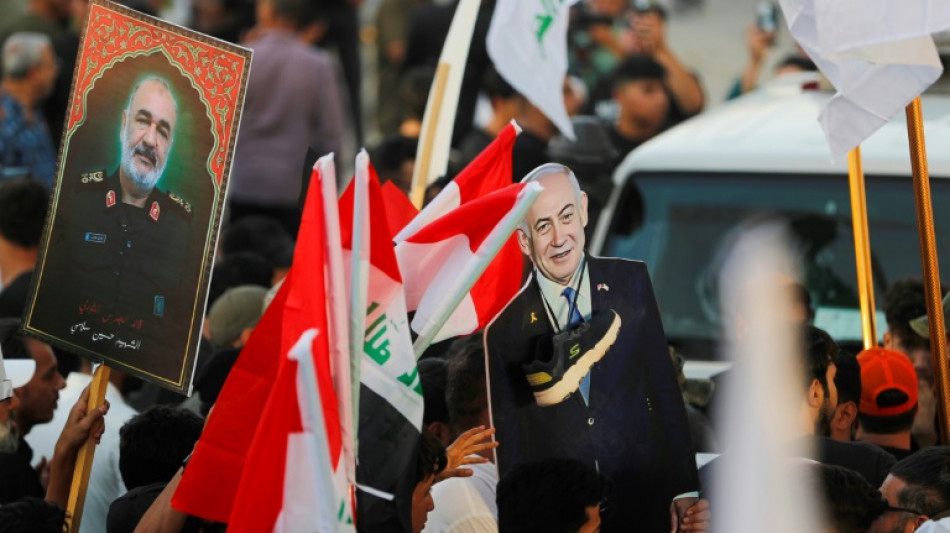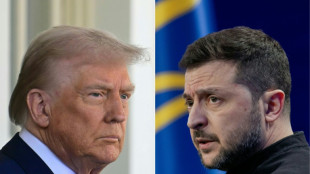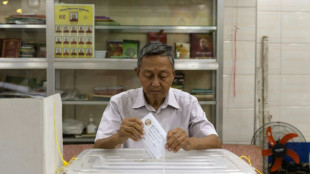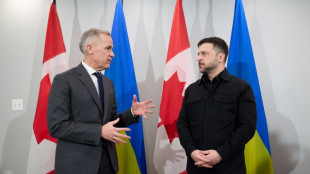

Iraq treads a tightrope to avoid spillover from Israel-Iran conflict
In Iraqi airspace, Iranian missiles and drones have crossed paths with Israeli warplanes, forcing Baghdad to step up efforts to avoid being drawn into the region's latest conflict.
But with Baghdad both an ally of Iran and a strategic partner of the United States, Israel's closest supporter, it may struggle to avoid the fighting spreading to its territory.
"There is a sizable risk of a spillover escalation in Iraq," said political analyst Sajad Jiyad.
"Iraqis have a right to be worried," he added.
With warnings of all-out regional war intensifying following Israel's surprise assault on Iran last week, fears are growing over an intervention by Iran-backed Iraqi factions, which have been calling for the withdrawal of US troops deployed in Iraq as part of an anti-jihadist coalition.
A senior Iraqi security official told AFP on condition of anonymity that among pro-Iran actors "everyone is cooperating with the government to keep Iraq away from conflict."
But Jiyad warned that if the US supports Israel's attacks, it "may lead to pro-Iran elements inside Iraq targeting US troops" or other American interests like the embassy in Baghdad or the consulate in Erbil, the capital of the autonomous Kurdistan region.
This could lead to the US and Israel taking retaliatory actions within Iraq, Jiyad added.
Iraq, which has been for years navigating a delicate balancing act between Tehran and Washington, has long been a fertile ground for proxy battles.
- 'On standby' -
In 2020, during US President Donald Trump's first term, Washington killed Iran's esteemed Revolutionary Guards general Qasem Soleimani in Baghdad.
Most recently, amid the Israel-Hamas war in Gaza, Iraq was on the brink of being drawn into the conflict after pro-Iran factions launched numerous attacks on US troops in the region, as well as mostly failed attacks on Israel, in support of Palestinians.
Washington retaliated by hitting the armed groups.
In recent days, Baghdad has been working diplomatic channels to prevent the latest violence from spreading onto its turf.
It has called on Washington to prevent Israeli jets from using Iraqi airspace to carry out attacks against Iran.
It also asked Iran not to strike US targets in its territory, and was promised "positive things", according to a senior Iraqi official.
Israel's use of Iraq's airspace has angered pro-Iran groups, who accused US troops of allowing it.
Powerful armed faction Kataeb Hezbollah stressed that Iran does not need "military support", but it said that the group is "closely monitoring" the US military in the region.
It warned that if Washington intervenes in the war, the group "will act directly against its interests and bases in the region without hesitation."
A US official urged the Iraqi government to "protect diplomatic missions, as well as US military personnel."
"We believe Iraq will be more stable and sovereign by becoming energy independent and distancing itself from Iran's malign influence," the official told AFP, referring to Iraq's dependency on gas imports from Iran.
The official, who spoke on condition of anonymity, warned that Iran-backed groups "continue to engage in violent and destabilising activities in Iraq."
- Not alone -
Israel's surprise attack on Iran targeted military and nuclear facilities and killed many top commanders and atomic scientists. Iran responded by unleashing barrages of missile strikes on Israel.
Tamer Badawi, an expert on Iraqi armed groups, said "the more Iran struggles to sustain its firepower against Israel, the likelier it becomes that Iraqi paramilitary actors will be drawn in."
For now, "Iran is trying to avoid collateral damage to its network by keeping its regional allies on standby. But this posture could shift," he added.
Before launching its attack on Iran, Israel had badly hit Tehran's proxies in the region, significantly weakening some groups, including Lebanon's Hezbollah.
"Beyond attacks within Iraq, Iran-backed Iraqi groups retain the capacity to target Israel from western Iraq using their missile arsenals, as they have done before," Badawi said.
They might also target American interests in Jordan.
But Iraqi officials say they have other plans for their country, which has only recently regained a semblance of stability after decades of devastating conflicts and turmoil.
Iraq is gearing up for its legislative elections in November, which are often marked by heated political wrangling.
For armed groups, elections are a crucial battleground as they strive to secure more seats in parliament.
"Sometimes, the sword must be kept in the sheath, but this does not mean abandoning our weapons," a commander of an armed faction told AFP.
The armed groups will not leave Iran, their "godfather.. in the battle alone."
H.Engstrom--StDgbl






